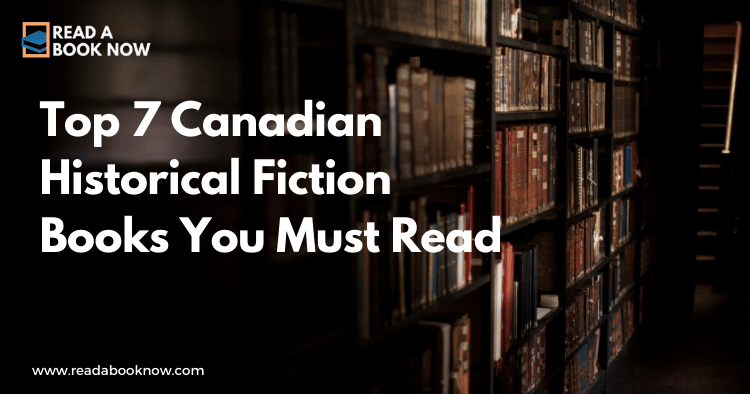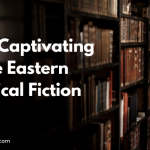Table of Contents
- Introduction
- 1. The Book of Negroes by Lawrence Hill
- 2. The Orenda by Joseph Boyden
- 3. The Blind Assassin by Margaret Atwood
- 4. The Colony of Unrequited Dreams by Wayne Johnston
- 5. The Night Watchman by Louise Erdrich
- 6. Through Black Spruce by Joseph Boyden
- 7. The Wars by Timothy Findley
- Conclusion
- FAQs
Introduction
Canadian history is rich and diverse, weaving together stories of Indigenous peoples, settlers, conflicts, and cultural evolution. Historical fiction serves as a vibrant tapestry that brings this history to life, allowing readers to journey through time and experience the past in a deeply personal way. In this post, we’ll explore seven must-read Canadian historical fiction books that not only entertain but also educate about Canada’s complex heritage.
1. The Book of Negroes by Lawrence Hill
The Book of Negroes is an unforgettable tale that chronicles the life of Aminata Diallo, a young African woman who is kidnapped and sold into slavery in the 18th century. Hill captures her journey from the horrors of slavery to her eventual freedom, where she becomes an advocate for her people.
Why Read It?
This novel is essential for understanding the African Canadian experience and the historical context of slavery in North America. Hill’s lyrical prose and rich character development make this story both compelling and educational.
Key Themes:
- Slavery and freedom
- Resilience and identity
- The importance of storytelling
“Hill’s portrayal of Aminata is a testament to the strength of the human spirit in the face of unimaginable adversity.”
For more on this book, check out Lawrence Hill’s official website.
2. The Orenda by Joseph Boyden
Set in the early 17th century, The Orenda tells the story of the relationships between Indigenous peoples and European settlers. The narrative weaves together the lives of a Huron warrior, a Jesuit missionary, and a young girl, exploring themes of cultural clash and the complexities of coexistence.
Why Read It?
Boyden’s work sheds light on the often-overlooked perspectives of Indigenous peoples during a tumultuous time in Canadian history. The novel’s authenticity and emotional depth provide a nuanced view of the impact of colonization.
Key Themes:
- Cultural conflict
- Spirituality and connection to land
- The impact of colonization
“Boyden crafts a narrative that is both enlightening and thought-provoking, urging readers to reflect on the legacies of colonization.”
Learn more about Joseph Boyden at his official site.
3. The Blind Assassin by Margaret Atwood
This Pulitzer Prize-winning novel intricately layers the story of two sisters, Iris and Laura, against the backdrop of post-World War II Canada. Through a combination of a novel within a novel and flashbacks, Atwood explores issues of class, gender, and the complexities of memory.
Why Read It?
Atwood’s masterful storytelling and sharp commentary on societal norms make this book a staple in Canadian literature. It’s a poignant reflection on the roles women play in both personal and public spheres throughout history.
Key Themes:
- Gender roles and feminism
- Memory and storytelling
- Class and privilege
“Atwood’s work invites readers to engage with the intricate layers of human experience, revealing the often hidden stories of women.”
Discover more about Margaret Atwood at her official website.
4. The Colony of Unrequited Dreams by Wayne Johnston
This novel follows the life of the controversial Newfoundland politician Joey Smallwood. Johnston paints a vivid portrait of Newfoundland’s political landscape during the 20th century, bringing to life the aspirations and struggles of its people.
Why Read It?
Johnston’s work is not just a biography; it’s a deep dive into the cultural identity and historical challenges faced by Newfoundlanders. The storytelling is rich and immersive, making it an engaging read for history buffs and fiction lovers alike.
Key Themes:
- Political ambition and identity
- Newfoundland’s unique culture
- The complexity of dreams and realities
“Johnston intricately weaves personal and political narratives, offering a profound look at the forces that shape identity.”
Explore more about Wayne Johnston through his publisher’s site.
5. The Night Watchman by Louise Erdrich
Based on the true story of Erdrich’s grandfather, this novel revolves around the fight against the U.S. government’s termination policy in the 1950s that threatened Native American sovereignty. The narrative intertwines themes of love, resilience, and the struggle for justice.
Why Read It?
Erdrich offers a powerful and personal perspective on Native American history, making it both informative and deeply touching. This book not only serves as a historical account but also resonates with contemporary issues facing Indigenous communities.
Key Themes:
- Indigenous rights and sovereignty
- Family and community bonds
- Love and sacrifice
“Erdrich’s narrative brings to life the resilience of Indigenous peoples, shining a light on their ongoing struggles for rights and recognition.”
For a deeper look into Erdrich’s work, visit her official website.
6. *Through Black Spruce* by Joseph Boyden
In this gripping narrative, Boyden explores the lives of a Cree family in Northern Ontario as they navigate the complexities of modern life and the shadows of their past. The story alternates between the perspectives of a missing woman and her uncle, who is trying to uncover the truth.
Why Read It?
Boyden’s exploration of identity, loss, and resilience in the face of adversity highlights the contemporary challenges faced by Indigenous peoples, making this novel a poignant reflection on both history and modernity.
Key Themes:
- Identity and belonging
- The impact of colonialism
- Family and cultural heritage
“Through the lens of a missing person, Boyden sheds light on the ongoing issues of violence and loss within Indigenous communities.”
Check out more about Joseph Boyden’s works on his author page.
7. *The Wars* by Timothy Findley
Set during World War I, *The Wars* follows the story of Robert Ross, a young Canadian soldier who grapples with the horrors of war and the personal losses he endures. Findley’s vivid prose brings the brutality of war to life while exploring themes of love, loss, and trauma.
Why Read It?
Findley’s novel not only captures the physical battles of war but also delves into the psychological struggles faced by soldiers. It serves as a critical reminder of the human cost of conflict, making it an essential read for anyone interested in war history.
Key Themes:
- The brutality of war
- Psychological trauma
- The quest for meaning in chaos
“Findley’s poignant narrative is a harrowing exploration of the scars left by war, both seen and unseen.”
Learn more about Timothy Findley at his official website.
Conclusion
Canadian historical fiction offers a unique lens through which to view the complexities of our past. Each of these novels not only tells a compelling story but also enriches our understanding of Canada’s diverse history. Whether you’re seeking tales of resilience, cultural clashes, or personal struggles, these books provide a meaningful exploration of what it means to be Canadian.
FAQs
What is historical fiction?
Historical fiction is a literary genre in which the plot takes place in a setting located in the past. It often involves real historical events or figures, blending factual history with fictional narratives.
Why should I read Canadian historical fiction?
Canadian historical fiction provides insight into the diverse experiences and cultures that have shaped Canada. It allows readers to engage with the past in a personal and relatable way, enhancing their understanding of contemporary Canadian society.
Are there any other notable Canadian historical fiction authors?
Yes! Authors like Alice Munro, Ann-Marie MacDonald, and Michael Ondaatje also have notable works that contribute to the genre.
Where can I find these books?
You can find these titles at local bookstores, online retailers, or your local library. Websites like Indigo and Amazon also offer these books.



